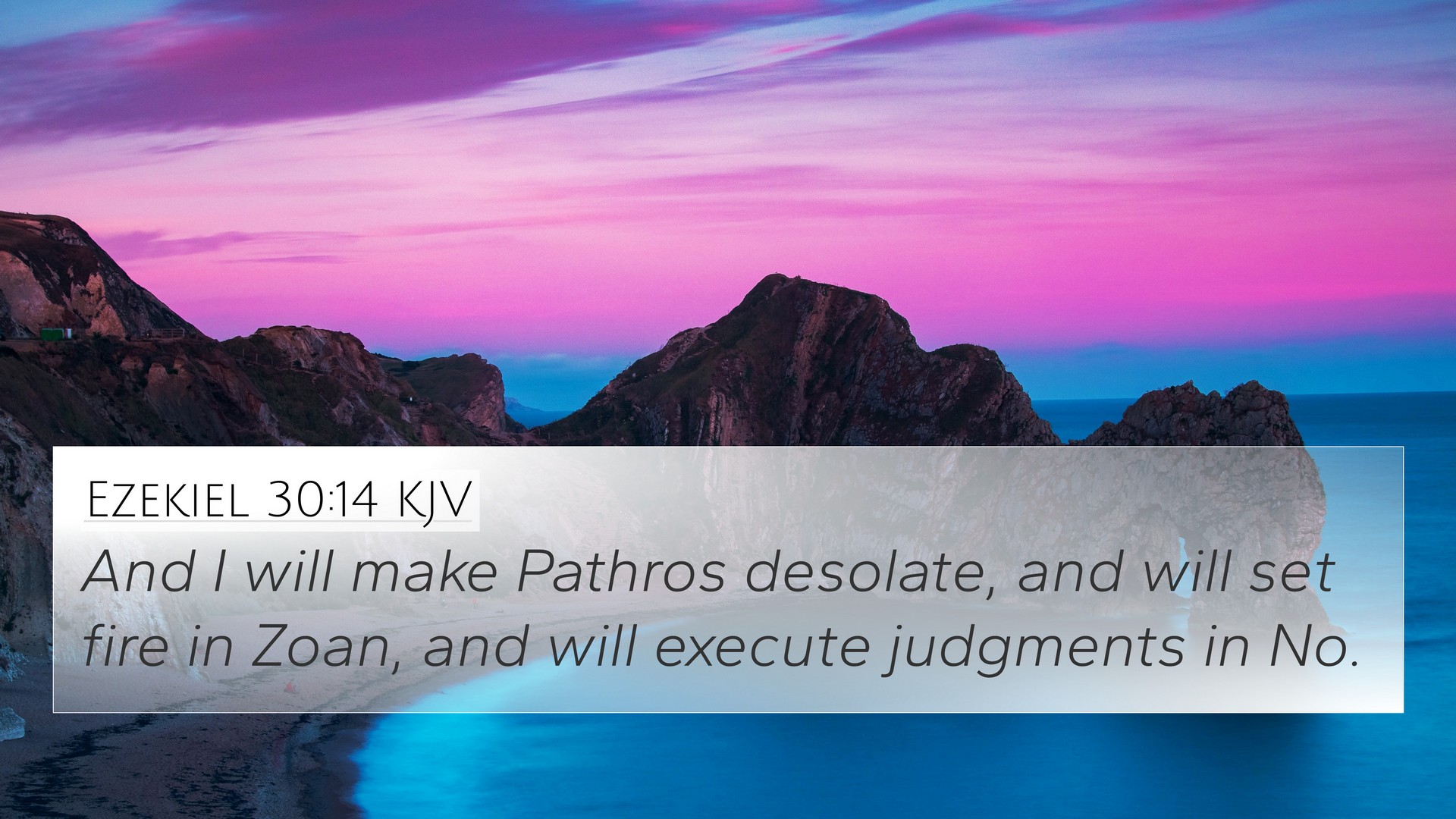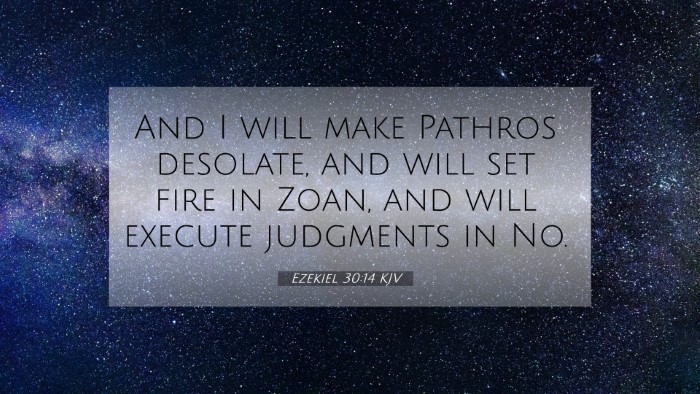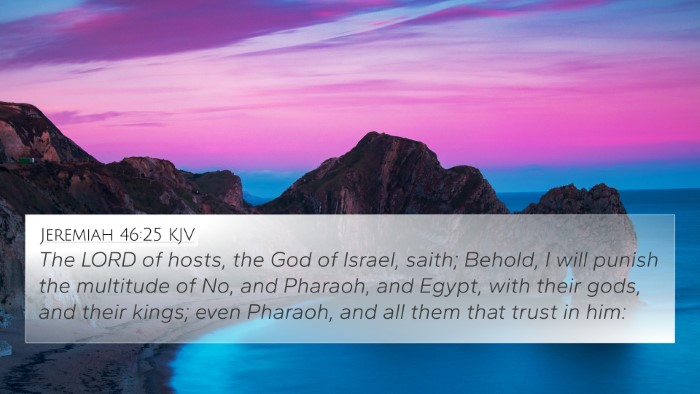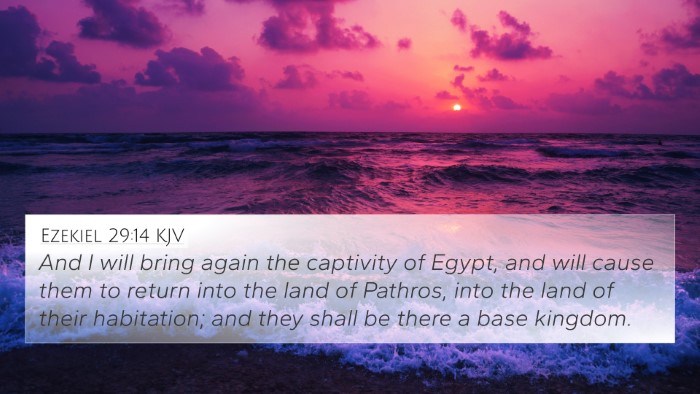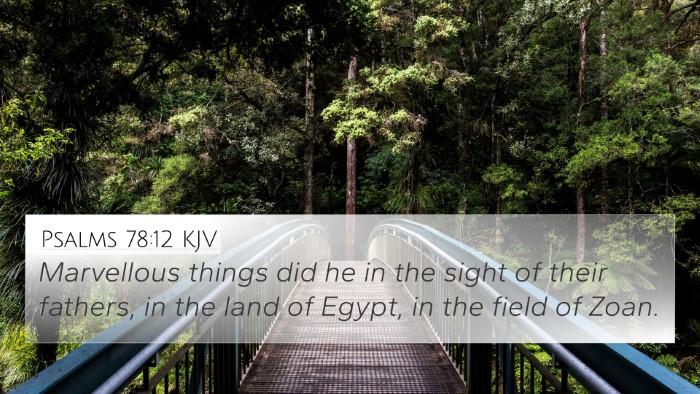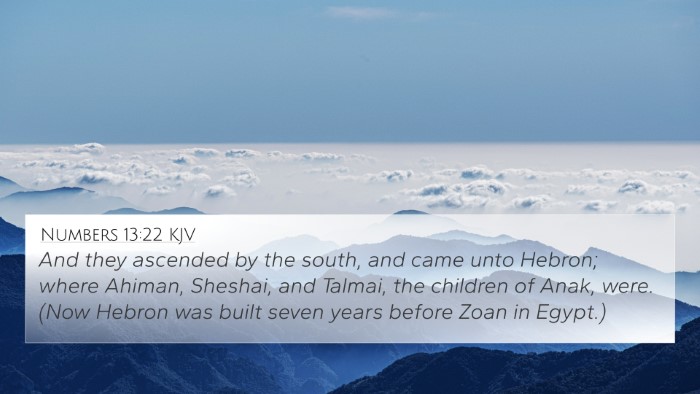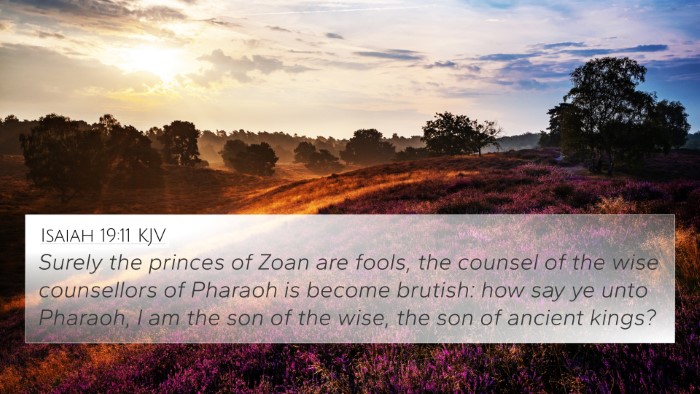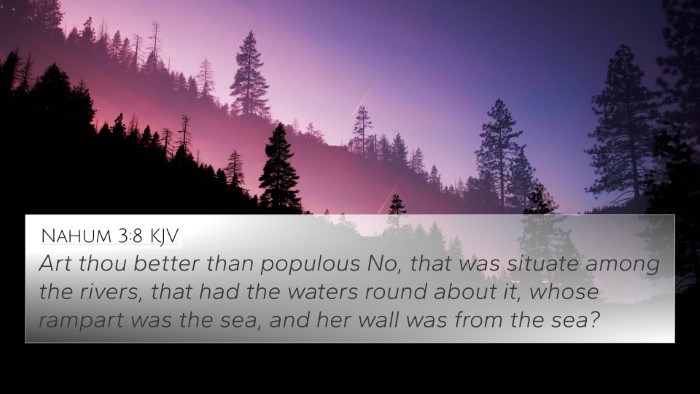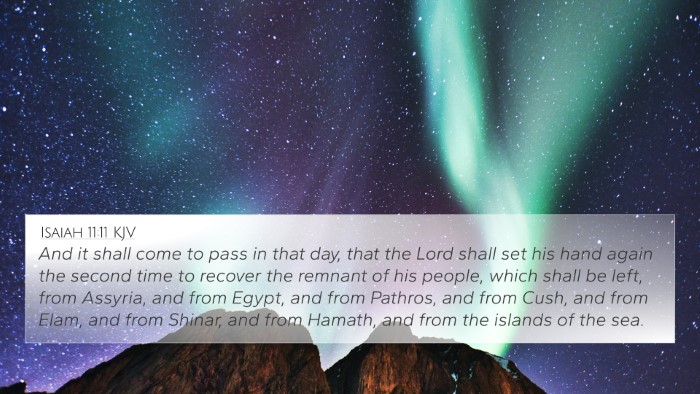Ezekiel 30:14 - Meaning and Interpretation
Ezekiel 30:14 states, "And I will make Pathros desolate, and will set fire in Zoan, and will execute judgments in No." This verse is part of a larger prophecy concerning the judgment on Egypt, where God declares His intentions to bring desolation upon these cities as a consequence for their idolatry and oppression.
Contextual Overview
The Book of Ezekiel addresses the people of Israel while they are in exile. The prophecies reflect not only the judgment on Israel but also on surrounding nations, emphasizing God's sovereignty over all lands. Ezekiel's prophetic visions encompass various themes, including desolation and restoration.
Insights from Public Domain Commentaries
- Matthew Henry: Henry emphasizes the severity of God's judgment against Egypt, representing a nation that once thrived but is now to face devastation. He highlights that the cities mentioned—Pathros, Zoan, and No—were important centers of Egyptian culture and worship. Their ruin signifies a divine response to an unrepentant nation.
- Albert Barnes: Barnes notes that this verse is categorized among the “burdens” of prophecy concerning Egypt. He explains that the destruction indicated here extends both to literal judgment and metaphorical implications of failing to recognize God's authority and covenant. The imagery of fire from Zoan symbolizes a purifying destruction.
- Adam Clarke: Clarke points out the geographical significance of the cities cited, noting that each city represented an aspect of Egyptian life. Clarke stresses that this judgment serves to show God's control over nations and His commitment to righteousness. The reference to “fire” is viewed as both a physical and spiritual cleansing process.
Thematic Connections
This verse holds significant connections with various other scriptures. Below are identifiable themes and cross-references that provide deeper understanding:
- Isaiah 19:1-4: A prophetic parallel illustrating God’s judgment on Egypt, highlighting the tumult and ruin that would come.
- Jeremiah 46:25-26: This passage complements Ezekiel's prophecies, declaring judgment against Egypt, reinforcing themes of divine sovereignty.
- Amos 1:6-8: The judgment against Philistia fits within the broader theme of divine retribution against nations that oppose God’s will.
- Matthew 12:41: Here, Jesus references the repentance of Nineveh as a contrast to the unrepentant nature of those nations, encouraging reflection on the need for repentance.
- Revelation 14:8: The fall of Babylon is likened to the destruction of Egypt, showcasing a thematic connection regarding the end of worldly powers.
- Deuteronomy 28:68: The warnings of captivity resonate with Ezekiel’s admonitions regarding Egypt’s fate, serving as a reminder of the consequences of unfaithfulness.
- Malachi 1:14: This passage speaks to God’s sovereignty over nations and serves to instill the fear of divine judgment on those who stray from His commands.
Understanding the Message
The overarching message from Ezekiel 30:14 speaks to the importance of recognizing God's authority over nations and the consequences of idolatry and sin. The use of specific cities emphasizes the individual and corporate nature of judgment when people turn away from God's laws.
Practical Application
For modern readers, this verse serves as a reminder of the importance of aligning one's actions with divine guidance and the need for repentance and humility before God. Themes of justice and divine authority are prevalent throughout scripture, encouraging individuals to seek righteousness in their lives.
Conclusion
In summary, Ezekiel 30:14 lays bare the certainty of God's judgment while inspiring hope for eventual restoration. Through the study of cross-references and the insights from historical commentaries, we see a rich tapestry of biblical truth that invites both reflection and action in our own spiritual journeys.
Resources for Further Study
To further explore the themes in Ezekiel and their connections throughout scripture, consider utilizing tools and systems for Bible cross-referencing. Resources such as a Bible concordance or a cross-reference Bible study guide can enhance understanding and provide context. Here are some suggested methods:
- Employ a Bible cross-reference system to identify themes accurately.
- Engage in a comprehensive Bible cross-reference study for deeper analysis.
- Utilize a Bible reference resource to assist in understanding connections.
- Explore Bible chain references that provide thematic links across scriptures.
